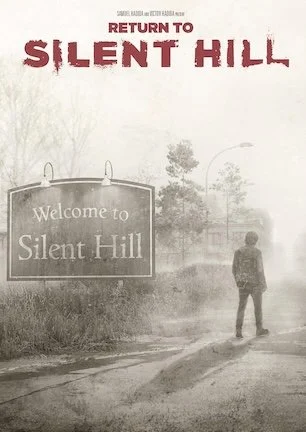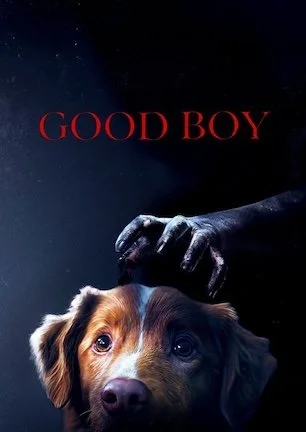Studio: Saban Films
Director: Marc Meyers
Writer: Alan Trezza
Producer: Mark Lane, Robert Jones, James Harris, Kyle Tekiela, Jarod Einsohn, Christian Armogida, Alexandra Daddario, Thomas van Dell
Stars: Alexandra Daddario, Keean Johnson, Maddie Hasson, Logan Miller, Amy Forsyth, Austin Swift, Johnny Knoxville
Review Score:
Summary:
With satanic panic sweeping the nation, six metalheads become mixed up in a murder plot targeting them to be the next victims.
Review:
When a movie doesn’t work, you can usually look at the plot or dialogue independent of how anything executes onscreen and at least see where the promise was on paper. Or maybe you can find something externally, let’s say an attractive shooting location like a tropical beach or exotic city, that might explain what someone found appealing about a project.
For the life of me, I cannot fathom why anyone agreed to participate in “We Summon the Darkness.” No matter how you slice it, there cannot possibly have been a circumstance where its painfully boring script and cheap staging looked like it would result in anything other than a razzberry. This was doomed to be detonated as a total bomb from the get-go, and I’m flabbergasted anyone could have believed otherwise.
It’s 1988. A rash of ritualistic murders dominates the news as satanic panic stokes fear across the country. In Indiana (or rather a Canadian incarnation of it), Alexis and her two gal pals are letting loose at a big heavy metal concert inside what looks like a strip mall sandwich shop. There they meet fellow headbangers Kovacs, Mark, and Ivan. Three plus three equals fun, so the girls invite the guys back to Alexis’ house for an afterparty.
I didn’t want to be “that guy” pulling out his phone in a theater to check the clock, but I’d guess everything I just described occupies at least one-third of the film. It certainly feels like it anyway.
Coming together at an excruciatingly slow speed, “We Summon the Darkness” features one of the most poorly paced first acts in horror-comedy history. That is not hyperbole. Things happen, if 20 minutes of talking counts. But the plot stays at a dead standstill while the sextet plays an overlong game of Never Have I Ever, laboriously recounts Metallica’s lineup changes like they’re drafting a detailed Wikipedia entry, and goes over every person’s first concert experience so additional ‘80s music references can be pointlessly name-dropped.
Heavy metal culture means to play prominently in the movie, except producers licensed just one, yes only one, metal song for their three-song soundtrack. (One of the other two songs is a cover of “Heaven Is a Place on Earth” because the budget couldn’t afford Belinda Carlisle’s original.) I’ll throw up some devil horns in appreciation of that lone metal band being Mercyful Fate, a personal favorite of mine. But if you only have money for one such track, and the cheapest option available at that, what are you even doing making a supposedly heavy metal horror movie in the first place?
As if conspicuously scant needle drops aren’t bad enough, the score takes noticeably long bathroom breaks too. Without music helping to move momentum, extended spans of soundtrack silence leave early scenes with nothing but inconsequential conversations to futilely spur audience engagement. Unless you’re unusually invested in seeing six actors sitting around a fire casually chatting, you’re sh*t out of luck for finding something suspenseful to hook into.
Although the girls present themselves as average partygoers, the “twist” turns out to be that they are actually part of a Christian congregation’s conspiracy to stage satanic slaughter. The three guys are naturally the next victims. Sorry if that’s a spoiler, but there’s really no other way to talk about the story because that’s the only thing that happens in it. Even the clips released online give this supposed secret away because what else could possibly be shown to get anyone interested? Jokes about Judd Nelson being a dreamboat or “coke boogers” identifying a drug addict?
Since I didn’t laugh once, I listened for scattered chuckles in the crowd to try determining where comedy was apparently hiding. The loudest reactions came from “f*ck you!” being repeatedly used as a punchline, so get ready to guffaw if angry obscenities amuse you. Similar instances of highbrow hilarity include one gushing guy saying he needs a tampon, because you know, he’s bleeding. I guess dim-bulb dialogue is funny to some folks?
Once action mercifully kicks into gear, the movie should ride a comic carousel of uninvited guests unexpectedly arriving to throw wrenches into wickedness. But one after another, appearances from Alexis’ stepmother and a nosy sheriff are merely distracting vignettes of uninspired violence. Then the ring-leading pastor, played by Johnny Knoxville so against-type casting can count as creative cleverness, shows up and the film treats us to another telegraphed “shock” because it doesn’t think we immediately recognize he’s really a bad guy.
There are fun actors like Alexandra Daddario and Logan Miller here, yet they are squandered on a script desperately in search of a pulse. A recurring gag where one woman has to pee all the time constitutes characterization. Other than the girl whose conscience gives her an expected change of heart, the players on either side of the gender aisle are entirely interchangeable with their peers.
I genuinely have no idea what’s intended to be entertaining about “We Summon the Darkness.” Heavy metal hijinks featuring next to no heavy metal? Embarrassingly unfunny jokes? Some blood splashed around during chaotic commotion? Ogling attractive actresses from a lowered camera unsubtly positioned behind tight-fitting jeans?
I can’t even remotely recommend the movie. I’m scoring it with sympathy stars because I feel sorry for the seven production companies and double-digit number of producers who undoubtedly toiled tirelessly, yet threw away their efforts on irredeemable insipidness.
I don’t know what the cast and creators saw in “We Summon the Darkness.” I can’t begin to guess what an audience is supposed to see in it either.
Review Score: 30






While the 110-minute runtime could use a trim to maintain more energy, “Redux Redux” is an easy recommend for anyone who enjoys low-key sci-fi.